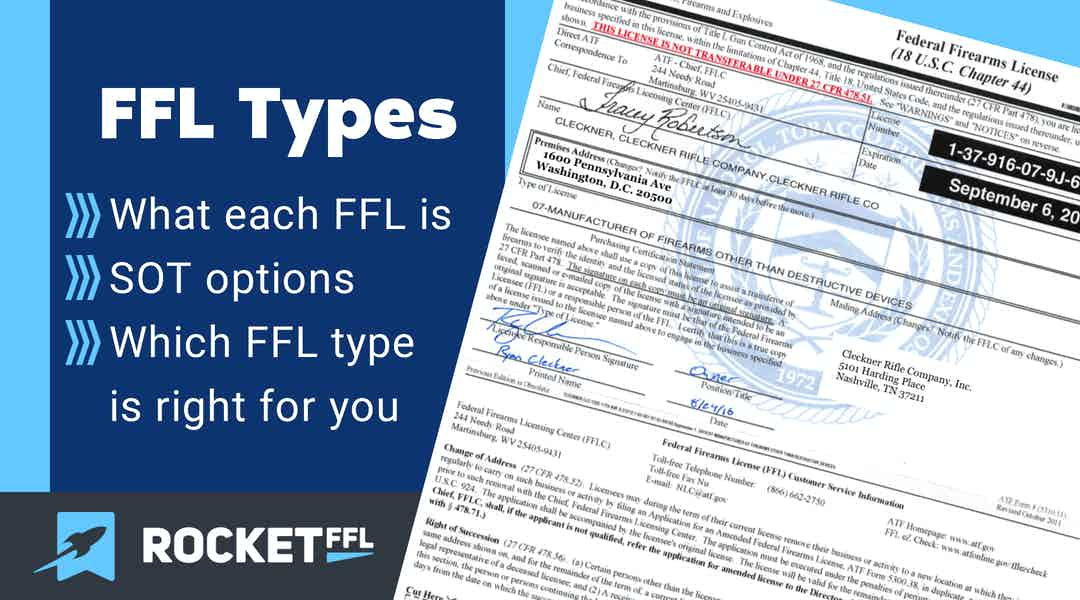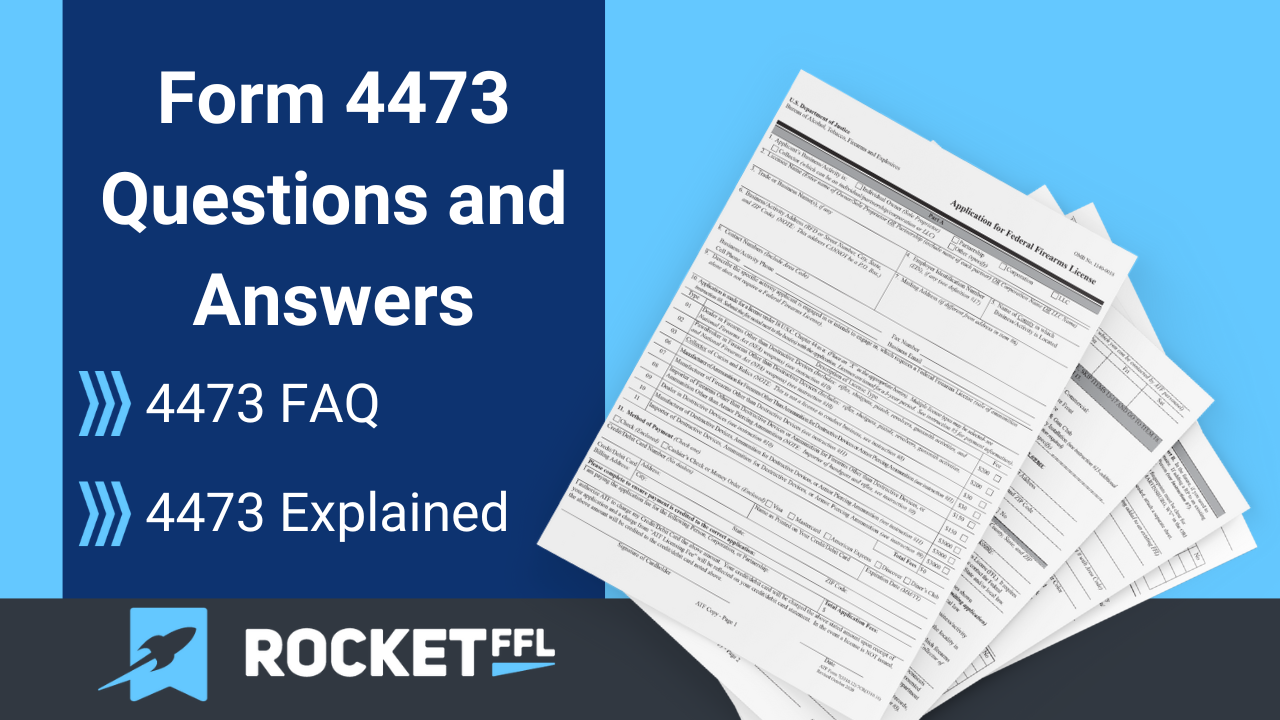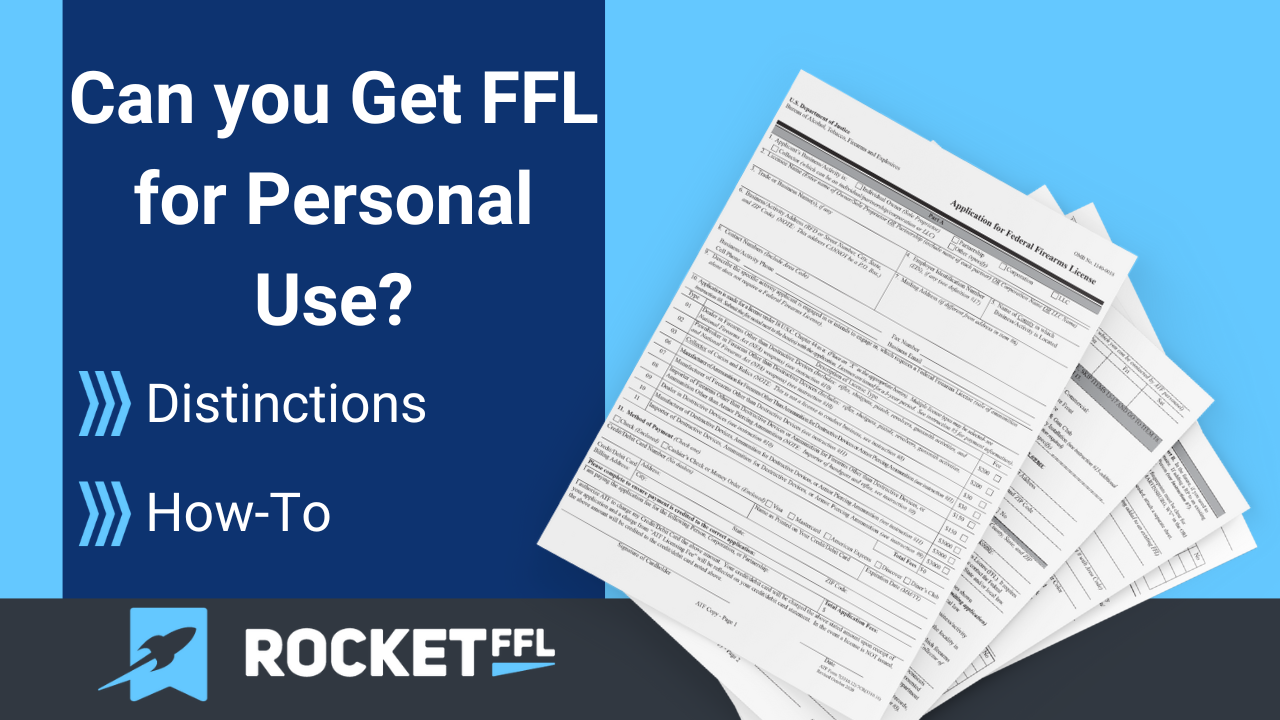There a different types of FFL to choose from. Make sure you understand which FFL type is best for you.

922r Compliance – Imported Firearms
If you’ve already been looking into 922r compliance, then you likely already know how confusing it can seem.
Worry not – I’m a firearms attorney and although this isn’t legal advice because I’m not YOUR attorney, I’ve represented hundred of clients across the country on firearm legal matters and can explain the 18 USC 922r in a way that makes sense and that you can apply to your guns.
If you’d like to import these firearms, work on them as a gunsmith, or you’ve been looking for a way to save money on guns (and make money with guns), check out our Get Your FFL Course.
What is 18 USC 922R?
Let’s get the boring part out of the way first – 18 USC 922r is the federal law that restricts which firearms may be imported into this country based on their features and it also limits what features those firearms may be modified to have (even after their import).
Title 18 of the United States Code (USC) covers crimes and criminal procedure.
Section 922r is in Chapter 44 for firearms, under Section 922 for “unlawful acts” and it covers the importation of firearms for “sporting purposes.
If you’d like to read the actual legal language of 922r and its regulations, I’m including it for you here but my advice is to just skip it and get to the plain-language explanation.
(r)It shall be unlawful for any person to assemble from imported parts any semiautomatic rifleor any shotgun which is identical to any rifle or shotgun prohibited from importation under section 925(d)(3) of this chapter as not being particularly suitable for or readily adaptable to sporting purposes except that this subsection shall not apply to…
The Bureau of Alcohol, Tobacco, Firearms, ad Explosives (ATF) has regulations to promulgate (carry-out) the law under the authority of the Attorney General.
The regulations for 922r compliance, found in 27 CFR 478.39 state:
(a) No person shall assemble a semiautomatic rifle or any shotgun using more than 10 of the imported parts listed in paragraph (c) of this section if the assembled firearm is prohibited from importation under section 925(d)(3) as not being particularly suitable for or readily adaptable to sporting purposes.. . .
(c) For purposes of this section, the term imported parts are:
(1) Frames, receivers, receiver castings, forgings or stampings
(2) Barrels
(3) Barrel extensions
(4) Mounting blocks (trunions)
(5) Muzzle attachments
(6) Bolts
(7) Bolt carriers
(8) Operating rods
(9) Gas pistons
(10) Trigger housings
(11) Triggers
(12) Hammers
(13) Sears
(14) Disconnectors
(15) Buttstocks
(16) Pistol grips
(17) Forearms, handguards
(18) Magazine bodies
(19) Followers
(20) Floorplates
How to Comply with 922R
With the legal-ese out of the way, let’s talk about what 922r really means and how to comply.
Effectively, 922r says that any imported shotgun or rifle must meet a “sporting purposes” definition in order to be considered 922r compliant.
The ATF has determined that the following features on a firearm would prevent it from meeting a “sporting purpose”:
- folding or telescoping stocks,
- a pistol grip that protrudes conspicuously beneath the action of the weapon,
- a bayonet or bayonet mount,
- ability to accept a “high-capacity magazine” (more than 10 rounds for rifles, 5 rounds for shotguns)
- a flash suppressor,
- threaded barrel designed to accommodate a flash suppressor,
- grenade launcher, and/or
- night sights
Therefore, before an imported firearm can have any of these features, it must not have too many foreign-made parts.
So, to determine whether a firearm is legal for 922r compliance purposes, follow these steps:
Step 1: Determine if you’er dealing with an imported rifle or shotgun. If not, stop here and don’t worry about 922r 🙂
Step 2: Determine whether the firearm has (or will have) any “offending” “non-sporting features” like a pistol grip, “high capacity” magazine (or whether it can accept one), a threaded barrel, or others. If not, stop here and don’t worry about 922r 🙂
Step 3: Go through the list of 20 parts and determine whether those parts are US Made or whether they are imported/foreign-made and add up the total number of foreign-made/imported parts.
Step 4: If the total number of foreign parts is 10 or fewer, you’re good to go. However, if the total number of parts is greater than 10, you must either remove the part or replace it with a US-made “compliance part”.
922r Example
Let’s use a WASR-10 AK-47 as an example of 922r compliance.
The final version that is sold in US gun shops has “offending” features like the ability to accept “high capacity” magazines, a threaded barrel, and a pistol grip.
Since it’s an imported firearm, it must have enough US made parts added to it (so there’s no mare than 10 foreign parts from the list) to allow these “offending” features.
They choose to import it in a configuration that does not have the offending features (e.g. the magazine well comes in too narrow to accept normal AK-47 magazines), they replace/add US made parts to get the parts-count correct, and then they add the “offending” features.
Let’s just assume that all 20 parts from the 922r parts list are foreign:
(1) Frames, receivers, receiver castings, forgings or stampings
(2) Barrels
(3) Barrel extensions
(4) Mounting blocks (trunions)
(5) Muzzle attachments
(6) Bolts
(7) Bolt carriers
(8) Operating rods
(9) Gas pistons
(10) Trigger housings
(11) Triggers
(12) Hammers
(13) Sears
(14) Disconnectors
(15) Buttstocks
(16) Pistol grips
(17) Forearms, handguards
(18) Magazine bodies
(19) Followers
(20) Floorplates
This would mean that they’d have to replace at least 10 parts with a US-made compliant part.
The easiest ones to replace would be:
- Trigger
- Hammer
- Sear
- Disconnector
- Buttstock
- Pistol grip
- Hand guard
- Muzzle device
- Magazine Body
- Magazine Follower
- Magazine Floorplate
Note how the trigger assembly counts as 4 US parts and the magazine counts as 3 (body, follower, floorplate).
If those parts were replaced with US parts, then the rifle, even though it was imported, could have the “non sporting” features because it has 10 or fewer items from the list as foreign parts.
This is why it is common to find parts like buttstocks, pistol grips, and magazines available for imported firearms that are clearly marked “Made in the USA’ – this allows them to be easily identified for 922r compliance.
If you found this information helpful and would like to learn more about firearms compliance, check out my ATF Compliance training through FFLSafe.com or enroll today in your Get Your FFL course.
Recommended Posts



